Disability and human rights advocateJessica Wetzdecided she’d had enough. To make her appointments more productive, she came up with a smart solution: compiling all her medical records—lab results, diagnoses, and treatment history—into a single binder. By bringing it to every visit, she feels prepared to address any doubts or questions about herhealth.
Jessica took toTikTokto share her approach, and her videos quickly went viral. Read on to discover how her system works and why it’s made such a difference in her journey.
RELATED:
After dealing with dismissive doctors one too many times, disability and human rights activist Jessica Wetz came up with a solution

She put together a medical binder for her appointments, and it has made her life so much easier
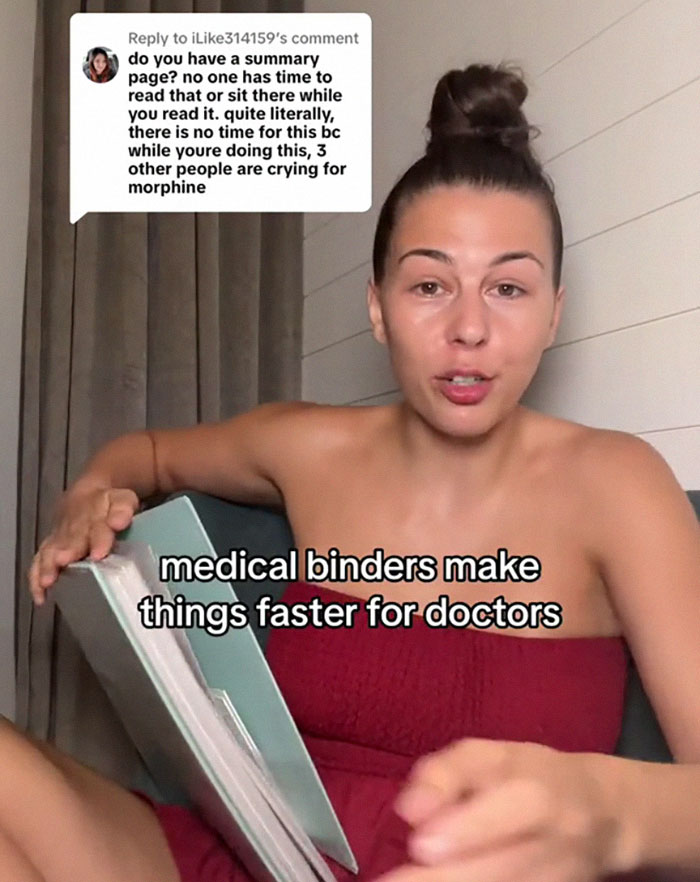
Image credits:jessicawetz6
“Medical binders make things faster for doctors, that’s why we use them and why they thank me for them. Let me explain how it works.
I had a doctor say to me, ‘There’s no way you had straightening of lumbar curvature at 14.’
You don’t have to believe me, I have the report right here. Let’s read it together.”
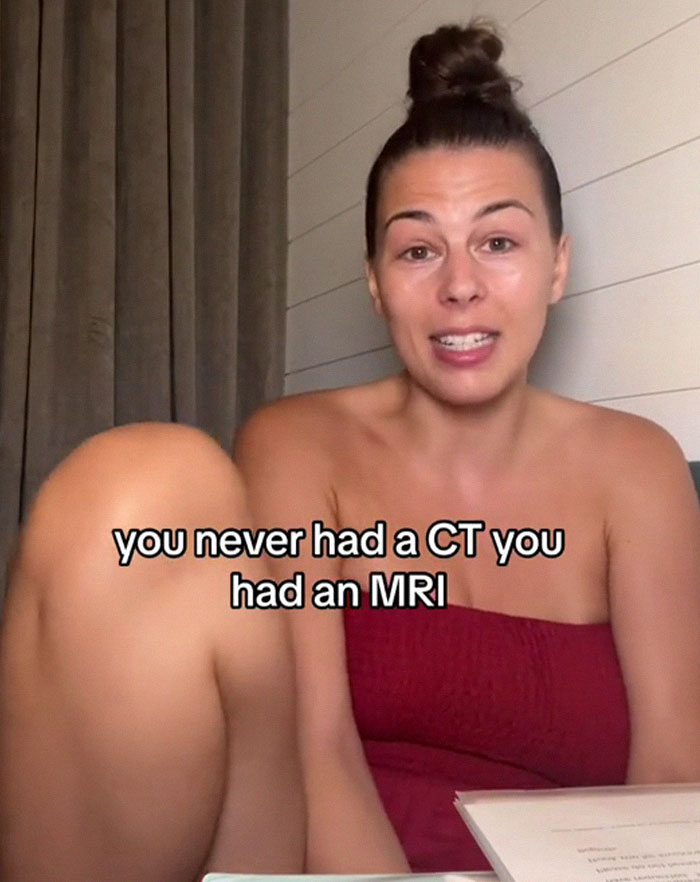
“I had a doctor say to me, ‘Okay, Jessica, I’m gonna order you some labs and then in six weeks, we’ll go over them.’
I go, ‘What blood work do you want?’
He goes, ‘Vitamin D, vitamin B, iron.’
‘Perfect, I had it 2 days ago. I have it right in front of me. We don’t need to wait 6 weeks.’
He’s like, ‘Oh, that was easy.'”
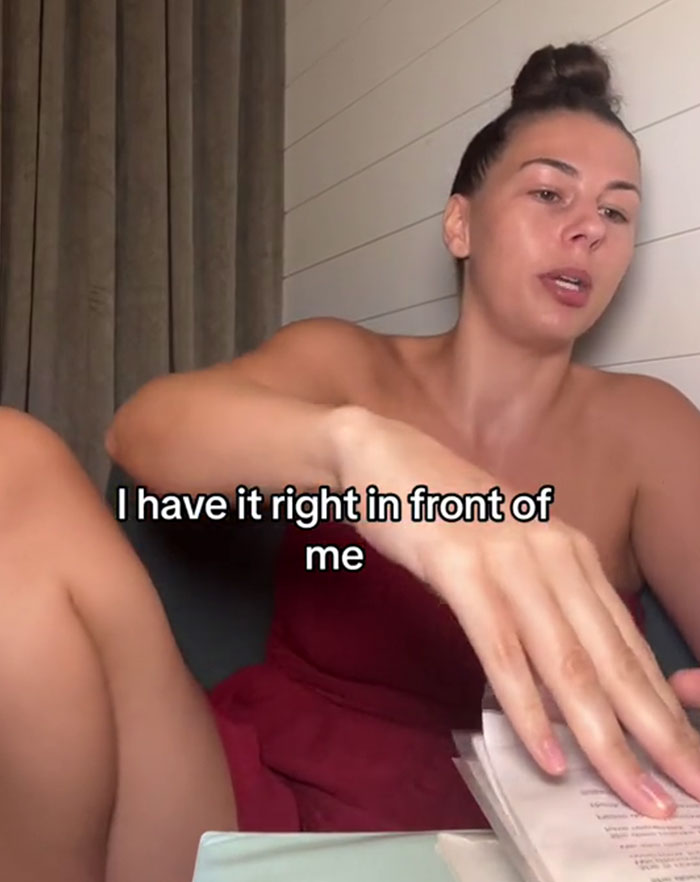
‘Hold up, doc, my CT showed liver disease.’
He goes, ‘No, Jessica, you never had a CT, you had an MRI.’
I go, ‘No, doc, pull it up, you have the report, I’ve had both.’
‘No, Jessica, let me explain to you the difference.’
‘Oh, OK, yeah, I’ll order that.'”
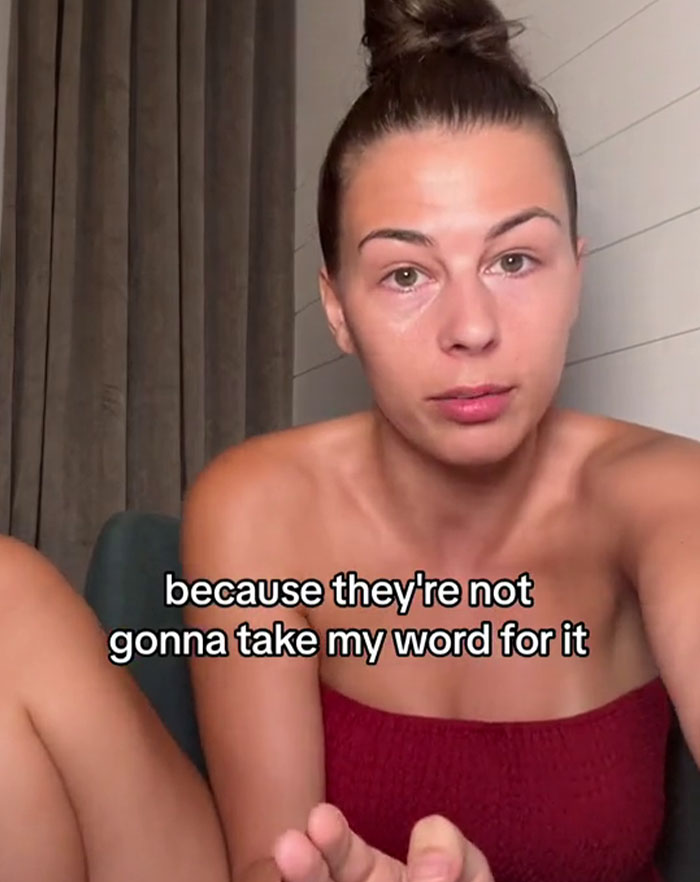
“And you saying a summary page is funny, because I do have a summary page that lists all my diagnoses and [stuff].
And one time, a doctor, I said I have Ehlers Danlos, he goes, ‘You have Ehlers Danlos? Like, a doctor diagnosed you with that?’
I go, ‘Yup.’
He goes, ‘What’s the doctor’s name?’
‘You don’t have to believe me, dude, I literally have the report right here. There you go.'”
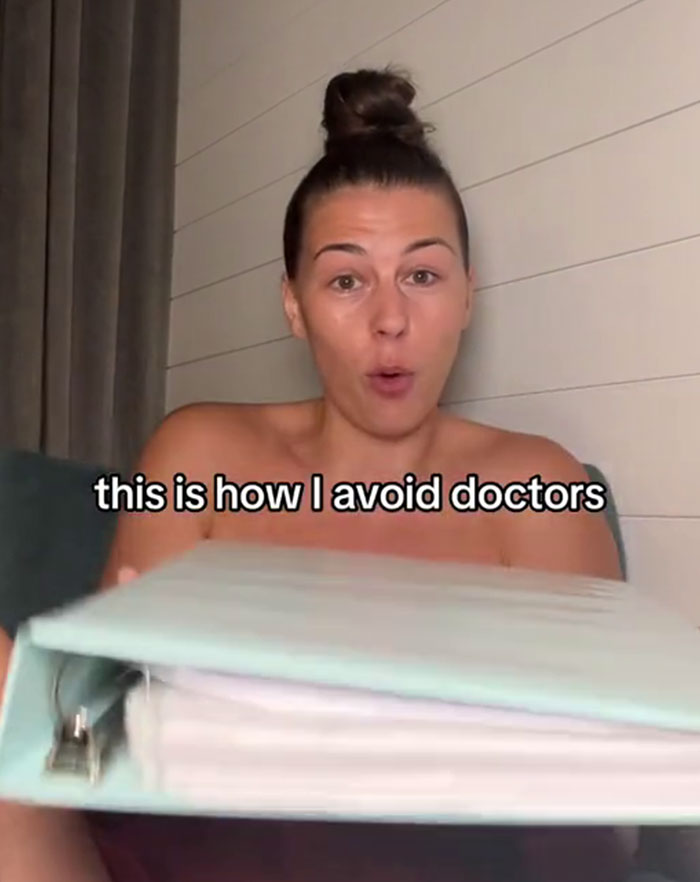
“So a summary report doesn’t do s**t, the purpose of the binder is to prove to them what other doctors have said because they’re not gonna take my word for it.
I had a doctor say to me, ‘Okay, Jess, we’re gonna order you an ultrasound.’
‘I already had an ultrasound a week ago.’
‘Yeah, we know, but we’ve called that hospital multiple times and they won’t send the report over.’
‘Guess what, I have it right here. No need to wait a month and waste somebody else missing out on an ultrasound, I already did the work for you.'”
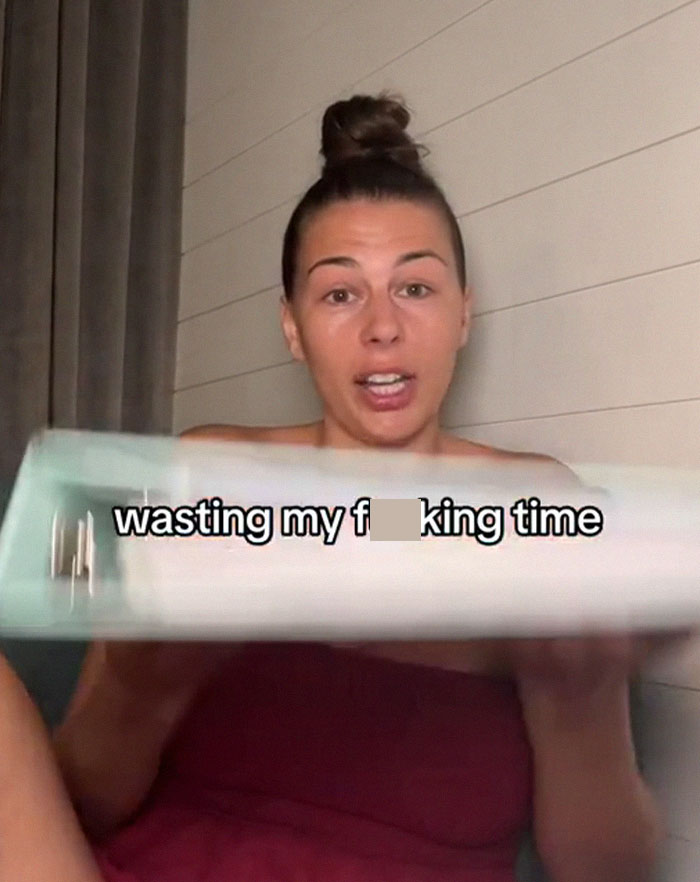
“So now you know, when you see a patient with a binder, they’re not there to read it to you front to back.
If I’m trying to talk to you about my knee pain, I’m not reading you my colonoscopy report. That’s not relevant.
I’m not reading you my echocardiogram, that’s not relevant. Unless you accuse me of never having one and you wanna argue with me.
Because with this book, I can shut down every [freakin’] time a doctor wanted to sit there for 15 minutes and mansplain some [nonsense] to me that’s not true.
So talk about wasting time, this is how I avoid doctors wasting my [freakin’] time.”
You can watch the videos in full below
Women and minorities are 20% to 30% more likely than white men to experience a misdiagnosis
If carrying your entire medical history to every appointment, especially as a woman, feels excessive, consider this: every year,12 million adults in the U.S.are misdiagnosed, often with serious consequences.
A misdiagnosis can be dangerous or even fatal. Research reported inJAMA Internal Medicinerevealed that nearly 1 in 4 hospital patients who died or were transferred to intensive care had experienced a diagnostic error. Nearly 18% of those misdiagnosed were harmed or died.
Overall, an estimated 795,000 patients a year die or are permanently disabled due to misdiagnoses, according to a study published inBMJ Quality & Safety.
However, some groups are more at risk than others. Women and racial and ethnic minorities are 20% to 30% more likely than white men to experience a misdiagnosis, said Dr. David Newman-Toker, a professor of neurology at Johns Hopkins School of Medicine and the lead author of the BMJ study. “That’s significant and inexcusable,” he toldKFF Health News.

Image credits:DC Studio / Freepik (not the actual photo)
Other findings consistently point to this bias. For example, a study inAcademic Emergency Medicineshowed that women who visited the emergency room with severe stomach pain waited almost 33% longer than men with the same symptom.
Among minorities, Black people with depression are more likely than others to be misdiagnosed withschizophrenia. Additionally, minorities are less likely than white patients to be diagnosed early withdementia, depriving them of access to treatments that are most effective in the early stages of the disease.
In this context, Jessica Wetz’s practice of carrying a medical binder is both practical and effective. However, while her approach helps manage the situation, it doesn’t address the root issue: the need for doctors to engage more thoughtfully and confront their biases.
In the meantime, if you feel you’re not being treated fairly, don’t stay silent. Speak up, voice your concerns, and if necessary, seek a second opinion. Your health is worth it.
Some viewers noted that in the US, simply getting access to your medical reports is a hurdle in itself
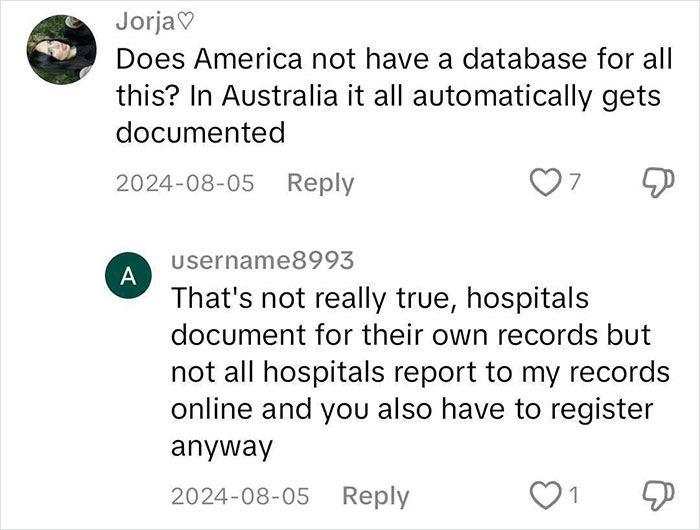
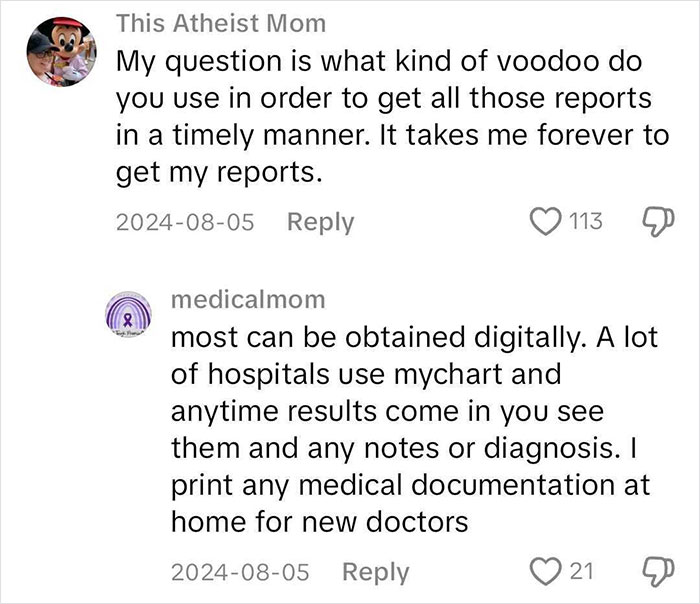
Meanwhile, others praised the idea of a medical binder but said it’s outrageous that it’s even necessary
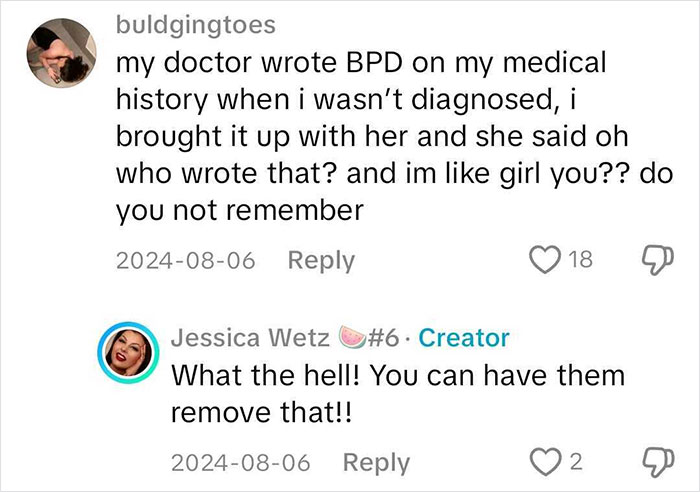




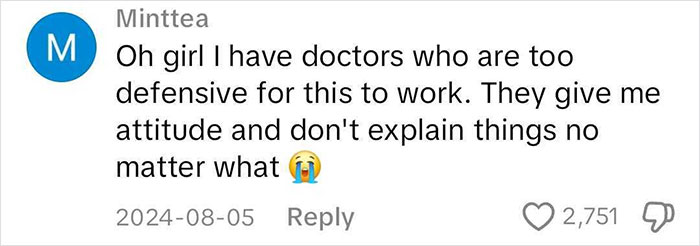
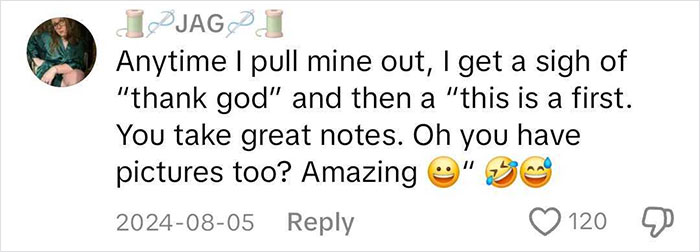
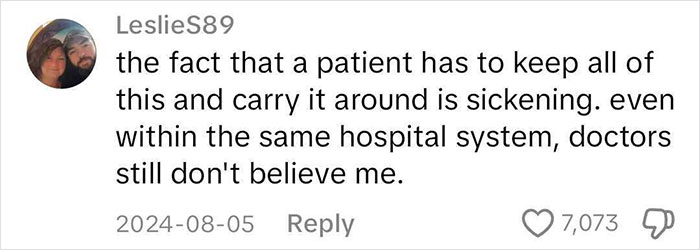
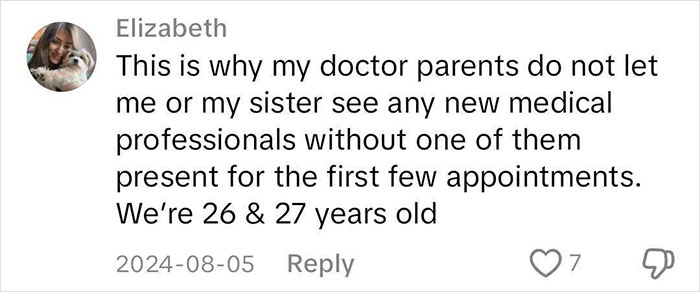
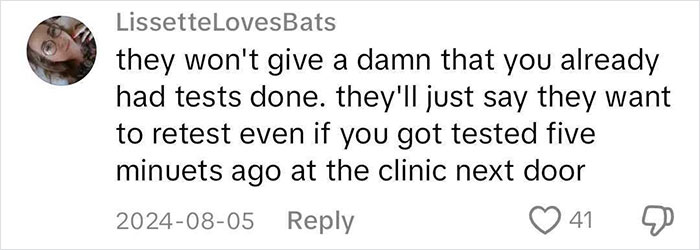
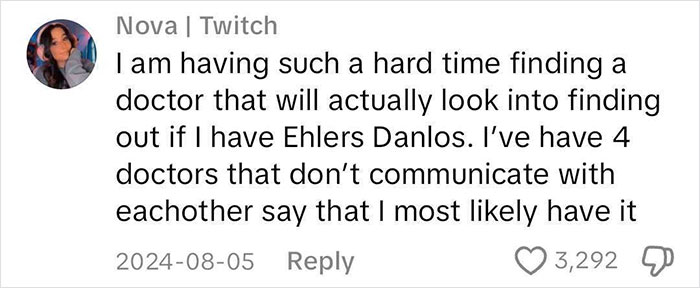
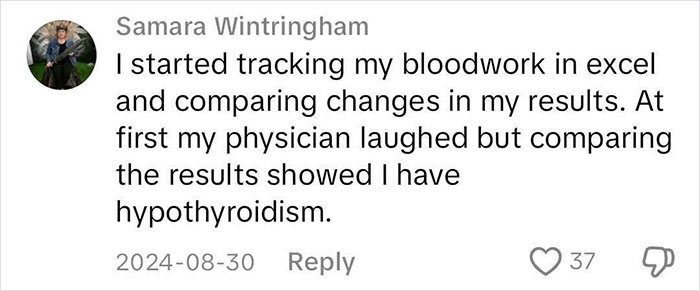
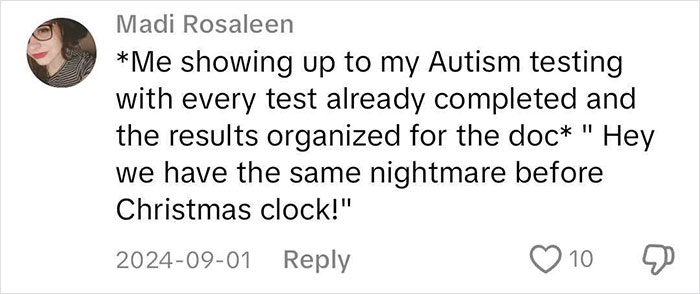

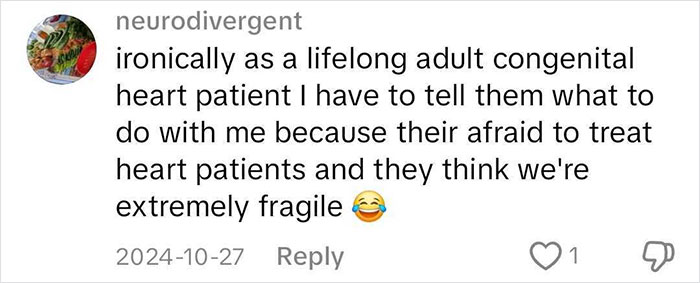
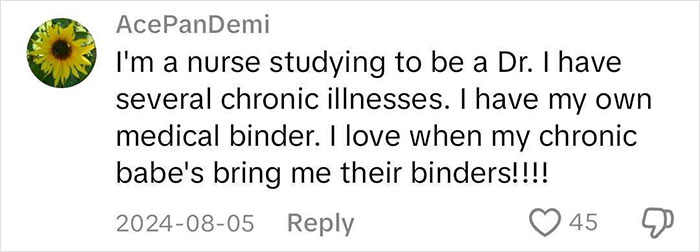
Thanks! Check out the results:
Social Issues